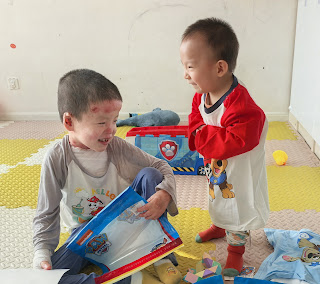We believe that children develop through meaningful social interactions and culturally rich experiences.
However, children growing up in institutional care settings and/or those with special needs often face a significant challenge—a mismatch between what they need for healthy cultural and psychological development and what their surrounding social environment provides. This incongruence can hinder their ability to fully participate in meaningful social and cultural experiences, which can further impact their emotional, cognitive, and social growth.
For example, a child with autism may thrive in a structured yet flexible setting that incorporates sensory-friendly activities, but if the environment is overstimulating or lacks appropriate social scaffolding, their development may be negatively affected.
Similarly, institutional care setting often involves standardized routines and structured activities, and so children often miss out on the rich and individualized interactions that families typically provide, leading to gaps in cultural and emotional learning.
We believe that to address this incongruence, the education of children with special needs and those in institutional care should prioritize building a safe, child-friendly, and relaxing environment that provides ample opportunities for the children to participate in different kinds of social and cultural activities for playful interactions and learning.
So how do we do this?
A safe and nurturing space
Emotional security is foundational to learning. Children need environments where they feel secure, valued, and free to explore without fear of judgment or failure. Building close, trusting relationships with caregivers, teachers, and peers can help children develop confidence and social competence.
Playful and interactive learning Play is central to cognitive and social development. We try to integrate both structured and free play opportunities that allow children to engage in social interactions, problem-solving, imagination and creativity.
Individualized support for every childIn our early learning classrooms, trained and compassionate teachers are able to recognize each child’s unique needs and ensure that social interactions, cultural engagements, and learning are tailored to their current developmental levels.
Rich cultural and social opportunities
We use every possible opportunity to expose the children to arts, music, storytelling, history, and community events. All these help children learn cultural norms and develop a sense of belonging.
When we design an environment that aligns with children’s developmental needs, we bridge the gap between their potential and their reality. By building safe, engaging, and socially rich spaces, we create conditions for children in institutional care and those with special needs to thrive.














